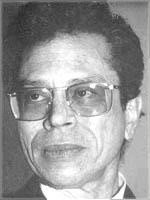Tomás Gutiérrez Alea is a Director, Scriptwriter and Dramaturgy Cubain born on 11 december 1928 at Havana (Cuba)

Tomás Gutiérrez Alea ([aˈlea]; December 11, 1928 – April 16, 1996) was a Cuban filmmaker. He wrote and directed more than 20 features, documentaries, and short films, which are known for his sharp insight into post-Revolutionary Cuba, and possess a delicate balance between dedication to the revolution and criticism of the social, economic, and political conditions of the country.
Gutiérrez's work is representative of a cinematic movement occurring in the 1960s and 1970s known collectively as the New Latin American Cinema. This collective movement, also referred to by various writers by specific names such as “Third Cinema”, “Cine Libre”, and “Imperfect Cinema,” was concerned largely with the problems of neocolonialism and cultural identity. The movement rejected both the commercial perfection of the Hollywood style, and the auteur-oriented European art cinema, for a cinema created as a tool for political and social change. Due not in a small part to the filmmakers’ lack of resources, aesthetic was of secondary importance to cinema’s social function. The movement's main goal was to create films in which the viewer became an active, self-aware participant in the discourse of the film. Viewers were presented with an analysis of a current problem within society that as of that time had no clear solution, hoping to make the audience aware of the problem and to leave the theater willing to become actors of social change.
Dès 1947, il commence à tourner des courts-métrages humoristiques. Ceux-ci, remarqués par le Parti Socialista Popular (PSP), lui permettent d'obtenir son premier contrat en 1948. En 1951, il part vivre pendant trois ans à Rome où il étudie la réalisation.
En 1955, de retour à Cuba, il coréalise avec Julio García Espinosa un moyen-métrage documentaire sur la vie des charbonniers des marécages de Zapata, El Megano (16 mm). Le film est confisqué par la police. Toujours avec Julio Garcia Espinosa, il organise en 1959 le Département Cinéma du Ministère de la Culture du gouvernement rebelle de Fidel Castro. Puis, il tourne l'emblématique Esta tierra nuestra (1959), premier court-métrage de fiction réalisé depuis l'avènement du régime castriste, consacré à la vie dans la campagne avant la réforme agraire. L'arrivée au pouvoir des forces révolutionnaires inspire son cinéma, et en 1960, il tourne coup sur coup son premier long-métrage de fiction Histoires de la Révolution (Historias de la revolución) et un court-métrage documentaire, Asamblea general, célébrant les manifestations populaires ayant débouché sur la première déclaration de La Havane.
En 1962, il réalise Doce sillas, qu'il présente l'année suivante à Moscou. En 1964, il réalise Cumbite, d'après un roman de Jacques Roumain.
En 1968 sort Mémoires du sous-développement, que nombre de critiques considèrent comme son plus grand film, et l'un des films les plus remarquables du cinéma cubain.
En 1976, après un an passé à représenter le cinéma cubain dans le monde, il réalise La Ultima Cena puis Les Survivants (Los Sobrevivientes) (1978), adapté de Jose Benitez Rojo. En 1979, arrive l'heure de la consécration pour ce réalisateur engagé : Mexico puis New York organisent les premières rétrospectives de son œuvre, tandis qu'il est l'invité des Festivals de Berlin et de Cannes, et que le Festival de San Francisco lui rend hommage. En 1983, il participe à la première Assemblée mondiale des réalisateurs de cinéma organisée au Portugal, et achève Jusqu'à un certain point (Hasta cierto Punto) qu'il présente en 1984 aux Festivals de Berlin et San Francisco. Cinq ans plus tard, il se lance dans sa première adaptation de Gabriel García Márquez, Lettres du parc, suivi en 1991 par le tournage au Mexique d'un court-métrage, toujours tiré des écrits de son célèbre contemporain colombien, Contigo en la distancia. En 1993, avec Juan Carlos Tabio, il réalise Fraise et Chocolat (Fresa y Chocolate) qui ouvre le XVe Festival international du nouveau cinéma latinoaméricain.
Déjà très malade, Tomas Gutierrez Alea qui, pendant des années, s'était vu refuser l'accès au territoire américain pour son supposé activisme politique pro-castriste, est finalement accueilli à Hollywood pour la nomination de Fraise et Chocolat aux Oscars 1995 dans la catégorie Meilleur film étranger. Il meurt le 16 avril 1996 à La Havane, à l'âge de 67 ans, quelques mois après la sortie en salles de son dernier film, Guantanamera.
Source : Wikidata
Tomás Gutiérrez Alea

Nationality Cuba
Birth 11 december 1928 at Havana (Cuba)
Death 16 april 1996 (at 67 years) at Havana (Cuba)
Awards Guggenheim Fellowship
Birth 11 december 1928 at Havana (Cuba)
Death 16 april 1996 (at 67 years) at Havana (Cuba)
Awards Guggenheim Fellowship
Gutiérrez's work is representative of a cinematic movement occurring in the 1960s and 1970s known collectively as the New Latin American Cinema. This collective movement, also referred to by various writers by specific names such as “Third Cinema”, “Cine Libre”, and “Imperfect Cinema,” was concerned largely with the problems of neocolonialism and cultural identity. The movement rejected both the commercial perfection of the Hollywood style, and the auteur-oriented European art cinema, for a cinema created as a tool for political and social change. Due not in a small part to the filmmakers’ lack of resources, aesthetic was of secondary importance to cinema’s social function. The movement's main goal was to create films in which the viewer became an active, self-aware participant in the discourse of the film. Viewers were presented with an analysis of a current problem within society that as of that time had no clear solution, hoping to make the audience aware of the problem and to leave the theater willing to become actors of social change.
Biography
À 18 ans, il commence des études de Droit à l'Université de La Havane et obtient son Doctorat en 1951. Mais ses véritables passions sont depuis toujours le cinéma et la politique, qu'il entremêlera tout au long de sa carrière.Dès 1947, il commence à tourner des courts-métrages humoristiques. Ceux-ci, remarqués par le Parti Socialista Popular (PSP), lui permettent d'obtenir son premier contrat en 1948. En 1951, il part vivre pendant trois ans à Rome où il étudie la réalisation.
En 1955, de retour à Cuba, il coréalise avec Julio García Espinosa un moyen-métrage documentaire sur la vie des charbonniers des marécages de Zapata, El Megano (16 mm). Le film est confisqué par la police. Toujours avec Julio Garcia Espinosa, il organise en 1959 le Département Cinéma du Ministère de la Culture du gouvernement rebelle de Fidel Castro. Puis, il tourne l'emblématique Esta tierra nuestra (1959), premier court-métrage de fiction réalisé depuis l'avènement du régime castriste, consacré à la vie dans la campagne avant la réforme agraire. L'arrivée au pouvoir des forces révolutionnaires inspire son cinéma, et en 1960, il tourne coup sur coup son premier long-métrage de fiction Histoires de la Révolution (Historias de la revolución) et un court-métrage documentaire, Asamblea general, célébrant les manifestations populaires ayant débouché sur la première déclaration de La Havane.
En 1962, il réalise Doce sillas, qu'il présente l'année suivante à Moscou. En 1964, il réalise Cumbite, d'après un roman de Jacques Roumain.
En 1968 sort Mémoires du sous-développement, que nombre de critiques considèrent comme son plus grand film, et l'un des films les plus remarquables du cinéma cubain.
En 1976, après un an passé à représenter le cinéma cubain dans le monde, il réalise La Ultima Cena puis Les Survivants (Los Sobrevivientes) (1978), adapté de Jose Benitez Rojo. En 1979, arrive l'heure de la consécration pour ce réalisateur engagé : Mexico puis New York organisent les premières rétrospectives de son œuvre, tandis qu'il est l'invité des Festivals de Berlin et de Cannes, et que le Festival de San Francisco lui rend hommage. En 1983, il participe à la première Assemblée mondiale des réalisateurs de cinéma organisée au Portugal, et achève Jusqu'à un certain point (Hasta cierto Punto) qu'il présente en 1984 aux Festivals de Berlin et San Francisco. Cinq ans plus tard, il se lance dans sa première adaptation de Gabriel García Márquez, Lettres du parc, suivi en 1991 par le tournage au Mexique d'un court-métrage, toujours tiré des écrits de son célèbre contemporain colombien, Contigo en la distancia. En 1993, avec Juan Carlos Tabio, il réalise Fraise et Chocolat (Fresa y Chocolate) qui ouvre le XVe Festival international du nouveau cinéma latinoaméricain.
Déjà très malade, Tomas Gutierrez Alea qui, pendant des années, s'était vu refuser l'accès au territoire américain pour son supposé activisme politique pro-castriste, est finalement accueilli à Hollywood pour la nomination de Fraise et Chocolat aux Oscars 1995 dans la catégorie Meilleur film étranger. Il meurt le 16 avril 1996 à La Havane, à l'âge de 67 ans, quelques mois après la sortie en salles de son dernier film, Guantanamera.
Usually with
Filmography of Tomás Gutiérrez Alea (13 films)
Director

Guantanamera (1995)
, 1h45Directed by Tomás Gutiérrez Alea, Juan Carlos Tabío
Origin Cuba
Genres Drama, Comedy, Comedy-drama, Romance
Themes Seafaring films, Transport films, Films about automobiles, Road movies
Actors Carlos Cruz, Pedro Fernández, Jorge Perugorría
Rating67%





When Aunt Yoyita dies during a visit to Gina in Guantánamo, Gina, along with Yoyita's childhood sweetheart, the aging Cándido, must take the body to Havana. To their annoyance, Gina's overbearing husband Adolfo, a punctilious undertaker with political ambitions, takes charge of the journey, including several transfers along the way between hearses.

Strawberry and Chocolate (1993)
, 1h50Directed by Tomás Gutiérrez Alea, Juan Carlos Tabío
Origin Cuba
Genres Drama, Comedy, Comedy-drama
Themes Seafaring films, Films about sexuality, Transport films, Bisexuality-related films, LGBT-related films, LGBT-related films, LGBT-related film
Actors Vladimir Cruz, Jorge Perugorría, Francisco Gattorno
Rating73%





The story takes place in Havana, Cuba in 1979. David (Vladimir Cruz) is a university student who meets Diego (Jorge Perugorría), a gay artist unhappy with the Castro regime's attitude toward the LGBT community as well as the censored conceptualization of culture. David's homophobic classmate, Miguel (Francisco Gattorno), plans to use David to spy on Diego, a person whom they see as aberrant and dangerous to the Communist cause; Diego, for his part, initiates the friendship with sexual intentions.
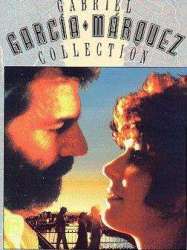
Letters from the Park (1989)
, 1h27Directed by Tomás Gutiérrez Alea
Origin Cuba
Genres Drama
Actors Víctor Laplace
Rating68%





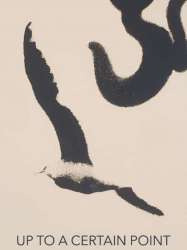
Up to a Certain Point (1983)
, 1h8Directed by Tomás Gutiérrez Alea
Origin Cuba
Genres Romance
Themes Feminist films
Actors Rogelio Blaín
Rating65%





Oscar, scénariste, et Arturo, cinéaste, envisagent de réaliser ensemble un film de fiction sur la persistance du machisme à Cuba. Ils choisissent comme terrain de leurs observations le milieu des dockers du port de La Havane. Leur objectif est de mettre en relief le décalage entre la conscience politique et l'attitude réelle des hommes à l'égard des femmes. Au cours de son enquête, Oscar s'éprend d'une employée, Lina, jeune fille-mère, cultivant avec fierté son autonomie. Le ménage d'Oscar se trouve alors menacé. Un autre conflit apparaît entre Oscar et Arturo au sujet du film. Leur projet commun finit par échouer en raison de divergences de conception. De son côté, Lina, en femme libérée, dénonce l'attitude contradictoire d'Oscar, prisonnier de certains comportements qu'il croyait pouvoir critiquer chez les autres. Elle décide, en définitive, de retourner dans sa ville natale, Santiago de Cuba, où elle peut espérer une ascension professionnelle.

The Survivors (1979)
, 2h10Directed by Tomás Gutiérrez Alea
Origin Cuba
Genres Drama
Actors German Pinelli
Rating72%






The Last Supper (1976)
, 1h49Directed by Tomás Gutiérrez Alea
Origin Cuba
Genres Drama
Themes Films about slavery
Actors Nelson Villagra, Tito Junco
Rating74%





The film tells the story of a pious plantation owner during Cuba's Spanish colonial period. The plantation owner decides to recreate the Biblical Last Supper using twelve of the slaves working in his sugarcane fields, hoping to thus teach the slaves about Christianity.
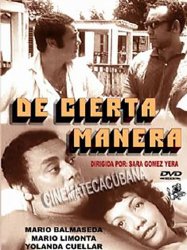
One Way or Another (1974)
Directed by Julio García Espinosa, Sarita Gómez, Tomás Gutiérrez Alea
Genres Drama, Documentary, Romance
Rating69%





Yolanda, a female teacher, cannot find the best methods to teach the marginalized children of the slums because of their different origin. Mario, a worker in a bus factory and a typical macho man, is confronted by Yolanda's instinct for emancipation. The two nonetheless become lovers. Their relationship portrays the idea that racism, sexism, and class-based prejudices must be demolished in order to succeed.

One Way or Another (1974)
, 1h18Directed by Julio García Espinosa, Sarita Gómez, Tomás Gutiérrez Alea, Julio García Espinosa
Origin Cuba
Genres Drama, Documentary
Rating69%





L'action se déroule à La Havane, dans le nouveau quartier de Miraflores, construit en 1962 pour reloger les habitants d'un bidonville, connu sous le nom des Yaguas. Une jeune institutrice, Yolanda, doit faire face aux problèmes posés par la mentalité et les réticences d'une population jusque-là habituée à vivre dans la marginalité. Elle est aussi amoureuse de Mario, qui fut, un temps, aspirant d'une société secrète et qui, désormais, se construit une nouvelle personnalité dans les brigades révolutionnaires. Au travail, les convictions idéologiques de Mario entrent en conflit avec les comportements de son meilleur ami, Humberto, plutôt hésitant et absentéiste. « Ce conflit, en milieu ouvrier, entre une nouvelle éthique qui se cherche et les anciens modèles culturels est aggravé chez Mario par un autre qui l'oppose à Yolanda, son amie et qui relève, celui-là, du machisme.
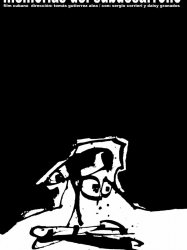
Memories of Underdevelopment (1968)
, 1h37Directed by Tomás Gutiérrez Alea
Origin Cuba
Genres Drama
Actors Sergio Corrieri, Daisy Granados
Rating75%





Sergio, a wealthy bourgeois aspiring writer, decides to stay in Cuba even though his wife and friends flee to Miami. Sergio looks back over the changes in Cuba, from the Cuban Revolution to the missile crisis, the effect of living in an underdeveloped country, and his relations with his girlfriends Elena and Hanna. Memories of Underdevelopment is a complex character study of alienation during the turmoil of social changes. The film is told in a highly subjective point of view through a fragmented narrative that resembles the way memories function. Throughout the film, Sergio narrates action, and at times is used as a tool to present bits of political information about the climate in Cuba at the time. In several instances, real-life documentary footage of protests and political events are incorporated into the film and played over Sergio’s narration to expose the audience to the reality of the Revolution. The timeframe of the film is somewhat ambiguous, but it appears to take place over a few months.

Death of a Bureaucrat (1966)
, 1h25Directed by Tomás Gutiérrez Alea
Origin Cuba
Genres Comedy
Rating75%





Francisco J. Pérez, ouvrier exemplaire, concepteur d'une machine à produire des bustes de José Martí, le héros national, meurt broyé par sa propre invention. Sur proposition de Ramos, responsable de l'atelier des images révolutionnaires, il est enterré avec son livret de travail, symbole de sa condition sociale. Or, privée de ce document, sa veuve ne peut obtenir sa pension de réversion. Son neveu, Juanchín, effectue d'incertaines démarches pour exhumer le cadavre. Mais, une fois le mort déterré clandestinement, il faut, à nouveau, obtenir un permis d'inhumer. Et, comment ? Puisque le défunt ne figure pas légalement comme exhumé. La quête de Juanchín sombre dans l'absurdité et provoque son hystérie. Après un dernier refus de l'administrateur, il l'étrangle. Une ambulance le conduit alors à l'asile. Sur la route du cimetière, le corbillard du bureaucrate assassiné croise un véhicule du service d'hygiène qui, alerté par la présence d'oiseaux charognards près du domicile de la veuve, ramène d'urgence la dépouille de l'ouvrier modèle dans son caveau.

The Twelve Chairs (1962)
, 1h34Directed by Tomás Gutiérrez Alea
Origin Cuba
Genres Comedy
Actors Adriano Domínguez
Rating67%






Stories of the Revolution (1960)
, 1h21Directed by Tomás Gutiérrez Alea
Origin Cuba
Genres Drama, Historical
Rating67%





Le révolution cubaine racontée en trois parties : El Herido, Rebeldes, La Batalla de Santa Clara.
Scriptwriter

Guantanamera (1995)
, 1h45Directed by Tomás Gutiérrez Alea, Juan Carlos Tabío
Origin Cuba
Genres Drama, Comedy, Comedy-drama, Romance
Themes Seafaring films, Transport films, Films about automobiles, Road movies
Actors Carlos Cruz, Pedro Fernández, Jorge Perugorría
Roles Writer
Rating67%





When Aunt Yoyita dies during a visit to Gina in Guantánamo, Gina, along with Yoyita's childhood sweetheart, the aging Cándido, must take the body to Havana. To their annoyance, Gina's overbearing husband Adolfo, a punctilious undertaker with political ambitions, takes charge of the journey, including several transfers along the way between hearses.

Strawberry and Chocolate (1993)
, 1h50Directed by Tomás Gutiérrez Alea, Juan Carlos Tabío
Origin Cuba
Genres Drama, Comedy, Comedy-drama
Themes Seafaring films, Films about sexuality, Transport films, Bisexuality-related films, LGBT-related films, LGBT-related films, LGBT-related film
Actors Vladimir Cruz, Jorge Perugorría, Francisco Gattorno
Rating73%





The story takes place in Havana, Cuba in 1979. David (Vladimir Cruz) is a university student who meets Diego (Jorge Perugorría), a gay artist unhappy with the Castro regime's attitude toward the LGBT community as well as the censored conceptualization of culture. David's homophobic classmate, Miguel (Francisco Gattorno), plans to use David to spy on Diego, a person whom they see as aberrant and dangerous to the Communist cause; Diego, for his part, initiates the friendship with sexual intentions.

Letters from the Park (1989)
, 1h27Directed by Tomás Gutiérrez Alea
Origin Cuba
Genres Drama
Actors Víctor Laplace
Roles Writer
Rating68%





 Connection
Connection
